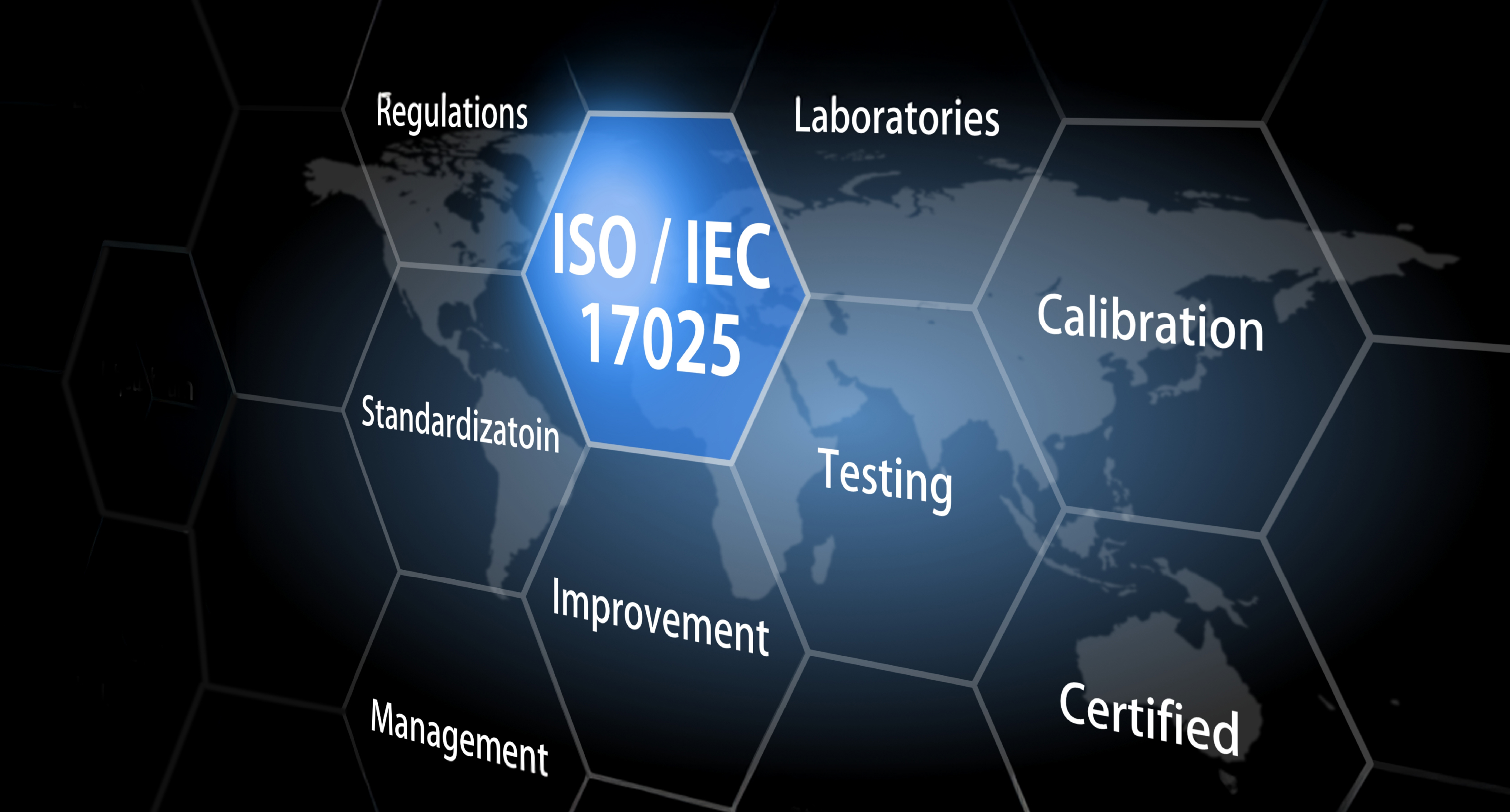- Blog Post
ISO/IEC 17025:2017 – The Global Standard for Calibration Laboratories
ISO/IEC 17025:2017 is the international standard that defines the competence, impartiality, and consistent operation of testing and calibration laboratories. In today’s business and regulatory landscape, accurate, traceable calibration services to meet compliance requirements. Achieving ISO 17025 calibration ensures that laboratories demonstrate both technical proficiency and global credibility. For organizations evaluating calibration labs, this standard is essential in ensuring reliability, regulatory alignment, and long-term trust. The adoption of ISO 17025 is not simply a compliance exercise but a strategic investment in quality and operational excellence.
What is ISO/IEC 17025:2017?
ISO/IEC 17025 is the leading international standard for testing and calibration laboratories. It specifies the requirements needed to consistently deliver valid results, with a focus on laboratory competence, impartiality, and reliability. First introduced in 1999 and updated in 2005, the current version—(Germany: ISO/IEC 17025:2018) —reflects modern laboratory practices by incorporating risk-based thinking, digital processes, and updated terminology.
This standard is globally recognized, serving as the foundation for laboratory accreditation and ensuring trust in calibration results across industries. By providing a clear framework for competence and consistency, ISO 17025 enables laboratories to position themselves as credible partners in a global supply chain. From pharmaceutical quality control to aerospace precision testing, ISO 17025 calibration offers the assurance stakeholders demand in highly regulated environments.
ISO 17025 calibration applies to laboratories of all sizes, whether independent service providers or in-house corporate labs. Pharmaceutical and biotech companies rely on it for compliance with stringent regulations. Automotive and aerospace firms adopt it to guarantee precision in mission-critical measurements. Environmental testing facilities use it to validate data that informs regulatory and sustainability decisions. Many laboratories also depend on specialized calibration baths and advanced calibration equipment to achieve the required measurement accuracy.
Key Changes in ISO/IEC 17025:2017
The 2017 update brought forward significant changes to help laboratories adapt to modern challenges. Risk-based thinking was introduced, reducing reliance on prescriptive requirements and encouraging proactive management of risks. Greater flexibility in processes and documentation allows laboratories to design systems tailored to their operations without compromising compliance. Digital integration reflects the growing use of electronic records, data management systems, and automated reporting in calibration.
The scope of the standard was expanded to cover all laboratory activities, not just calibration and testing. Leadership accountability was strengthened, requiring top management to play an active role in ensuring quality and consistency. These updates aligned ISO 17025 with other modern ISO management standards, creating harmonization across quality systems.
The earlier 2005 edition and its 2006 revision have been withdrawn. The 2017 revision remains the current standard, and like all ISO frameworks, it undergoes review every five years to ensure it keeps pace with technological and regulatory developments.
Certification and Accreditation
Certification to ISO 17025 demonstrates a laboratory’s technical competence and builds trust among clients, regulators, and industry partners. It enhances credibility, reduces downtime by minimizing the need for re-testing, and directly supports compliance with GxP compliance frameworks that govern pharmaceutical and biotech industries. Beyond cost savings, ISO 17025 certification elevates a lab’s reputation in global markets.
Accreditation represents the formal recognition that a laboratory not only follows ISO 17025 but consistently applies its requirements to produce accurate, traceable results. This recognition is granted by independent accreditation bodies such as DAkkS in Germany, NVLAP (NVLAP LAB CODE 200913-0) in the USA, CNAS in China, and NABL in India. Their approval demonstrates that a laboratory’s methods and outcomes meet the highest international standards. For clients, accreditation provides assurance that calibration results are valid, reproducible, and globally accepted.
Choosing an ISO-accredited partner, especially when searching for calibration services, helps organizations avoid costly errors, ensures regulatory compliance, and builds long-term confidence in equipment performance.
KAYE Calibration Services – Accredited Services
Kaye operates ISO 17025 calibration accredited laboratories in the USA (NVLAP LAB CODE 200913-0), Germany (DAkkS), China (CNAS), and India (NABL). Our calibration services go beyond standard industry practices, offering both in-house and on-site support. Equipped with advanced calibration equipment and staffed by factory-trained engineers, we ensure reliable results at every stage of your equipment’s lifecycle.
Our calibration services include high-precision calibration of thermal, pressure, and humidity measurements, execution of IQ/OQ protocols to meet cGMP requirements, and customized service agreements that secure long-term reliability. These agreements provide benefits such as predictable scheduling, discounts on repairs, priority service, and cost-effective contract options that optimize long-term planning.
Kaye’s accredited laboratories provide more than routine checks. Every service is designed to deliver traceable results, maintain data integrity, and reduce downtime, ensuring that equipment performs consistently over its lifecycle. With facilities accredited across four continents and operations in more than 45 countries, Kaye supports organizations with reliable calibration equipment services that align with international standards.
Conclusion
ISO/IEC 17025:2017 stands as the gold standard for laboratory calibration, ensuring competence, global credibility, and regulatory compliance. Organizations that adopt and maintain this standard protect their operations, reduce risk, and enhance trust with stakeholders worldwide. Beyond compliance, ISO 17025 drives operational excellence and positions laboratories as leaders in their industries.
With 65 years in the industry, Kaye’s accredited calibration services helps businesses worldwide to achieve these goals. Global coverage, expert engineers, and comprehensive service agreements, we provide more than calibration - we deliver confidence, accuracy, and operational continuity.
Contact Kaye today to request a demo or schedule your calibration service.


